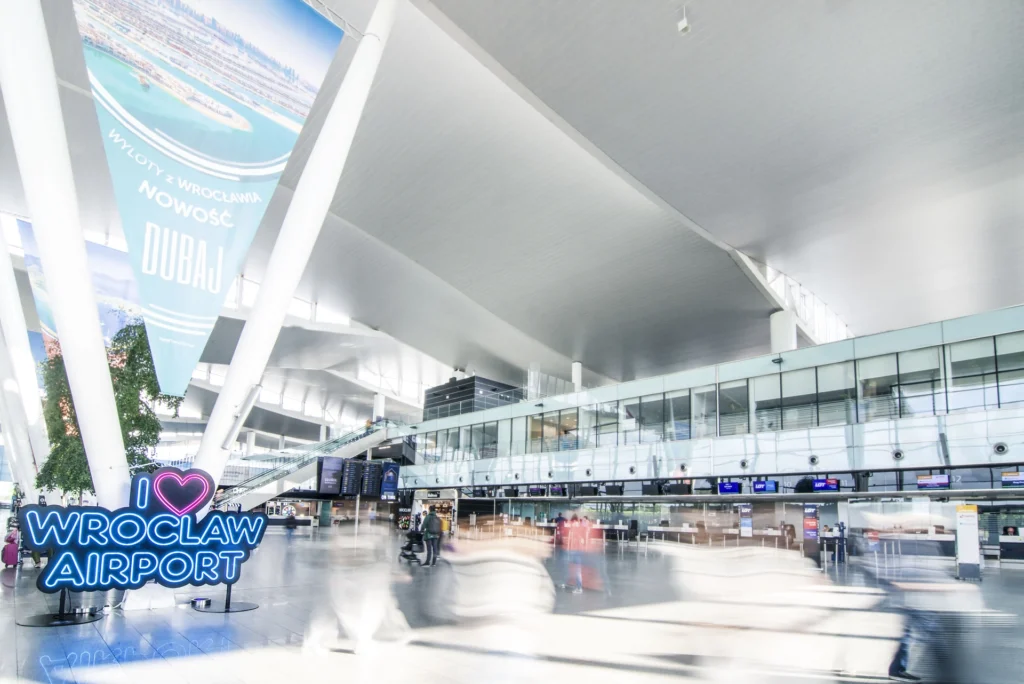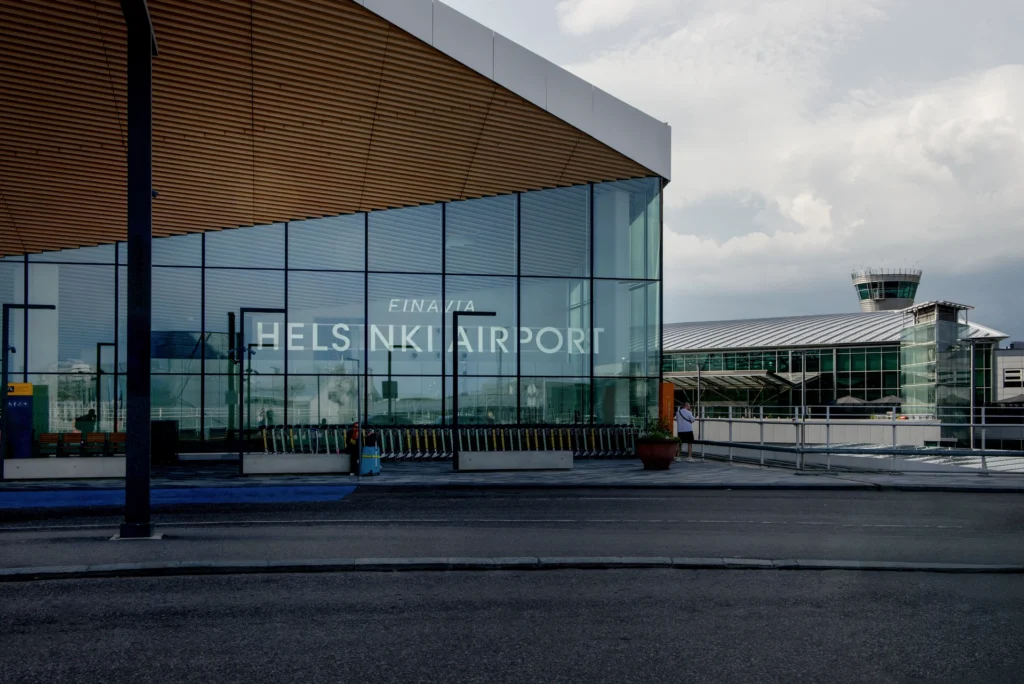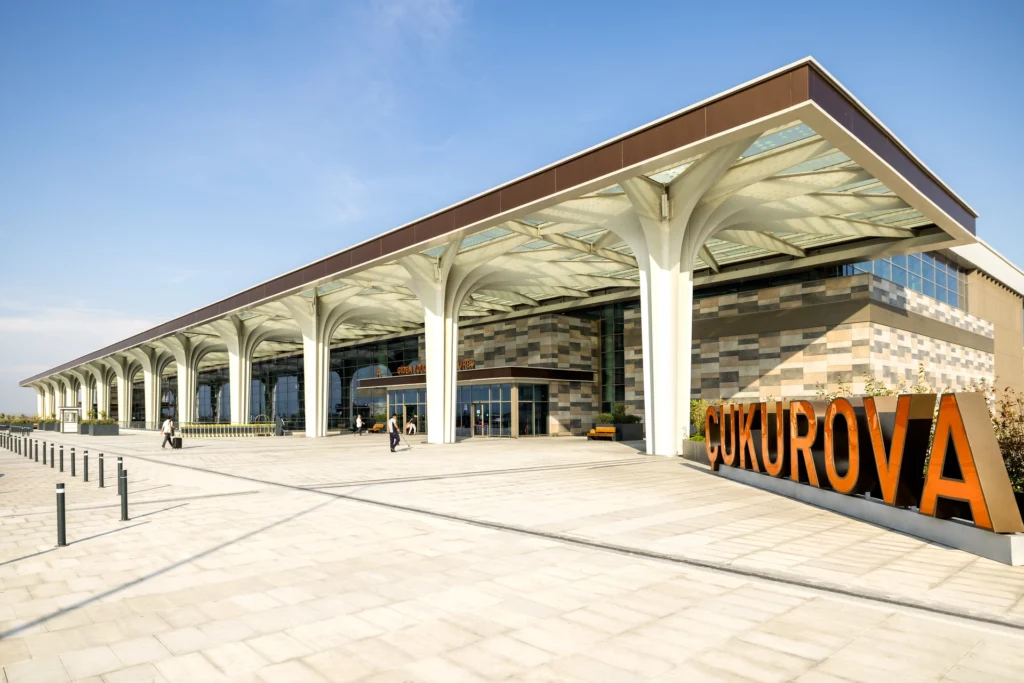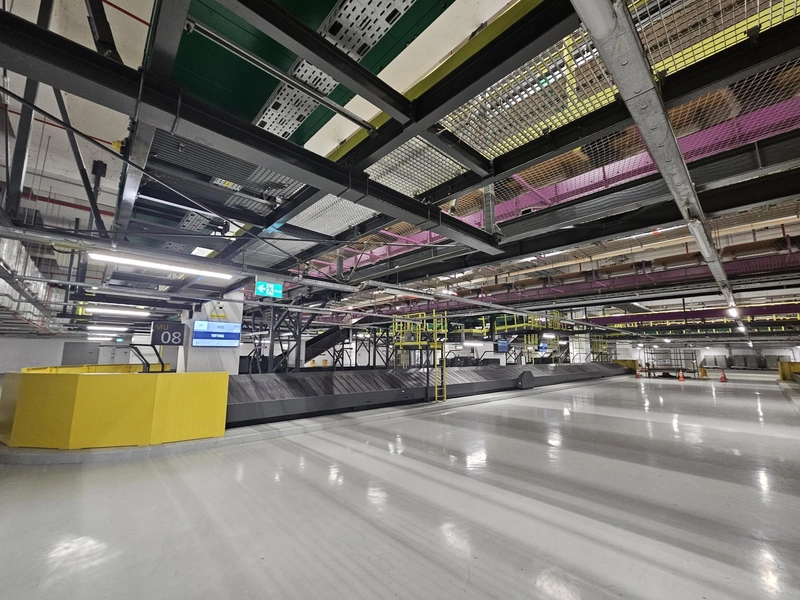Tallinn Airport (TLL), the largest international airport in Estonia, is experiencing dynamic growth. In 2024, the airport served nearly 3.5 million passengers, an 18% increase compared to the previous year. This rapid rise in traffic, combined with the expansion of the terminal infrastructure, created the need for a complete modernization of the baggage handling system (BHS) in the departures hall. The project had to be delivered without interrupting day-to-day airport operations – a task requiring both precision and flexibility.
BHS System Modernization at Tallinn Lennart Meri Airport (Estonia)
Project challenges
Carrying out the modernization while the terminal was fully operational was one of the biggest challenges. The absence of updated BIM models meant that installation clashes had to be identified and solved directly during the project, requiring advanced and flexible engeeniering, planning and constant coordination. Very low ceilings and narrow installation areas imposed significant spatial limitations, making the design and installation process highly demanding.
Another complexity was the need to integrate the new system with existing infrastructure. At the same time, the airport was relying on manual sorting using make-up carousels, so implementing a fully automated tilt-tray system was a major technological leap. Logistical constraints, intensified by the effects of the COVID-19 pandemic, added yet another layer of difficulty to the project.

Non-standard solutions
To address these challenges, Dimark designed and implemented a tilt-tray sorter with 119 trays, including chutes and induction lines. A new make-up carousel, feed line from the EDS and collection conveyors in the check-in island 3 area were replaced, further improving system performance.
On the automation side, Dimark provided a complete new suite of IT and control systems: SCADA, SAC, ATR, and BRS and the implementation of OOG (self bag drop for out-of-gauge baggage) – the first solution of this kind introduced in Estonia.The project concluded with comprehensive staff training and the delivery of detailed as-built documentation.
Final results
The result is a state-of-the-art BHS system tailored to the needs of a rapidly growing airport. The installed sorter operates at a speed of 1.6 m/s, enabling the handling of up to 4,800 bags per hour, while overall system throughput has been increased to over 2,500 bags per hour.
All modernization works were completed while the airport remained fully operational, with no disruptions to passenger services. The project has provided Tallinn Airport with modern technologies and robust infrastructure that not only support current traffic but also create capacity for future growth and terminal expansion.
Let’s continue the conversation, and shape the future of airport logistics together.





































